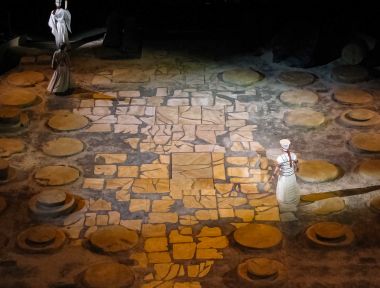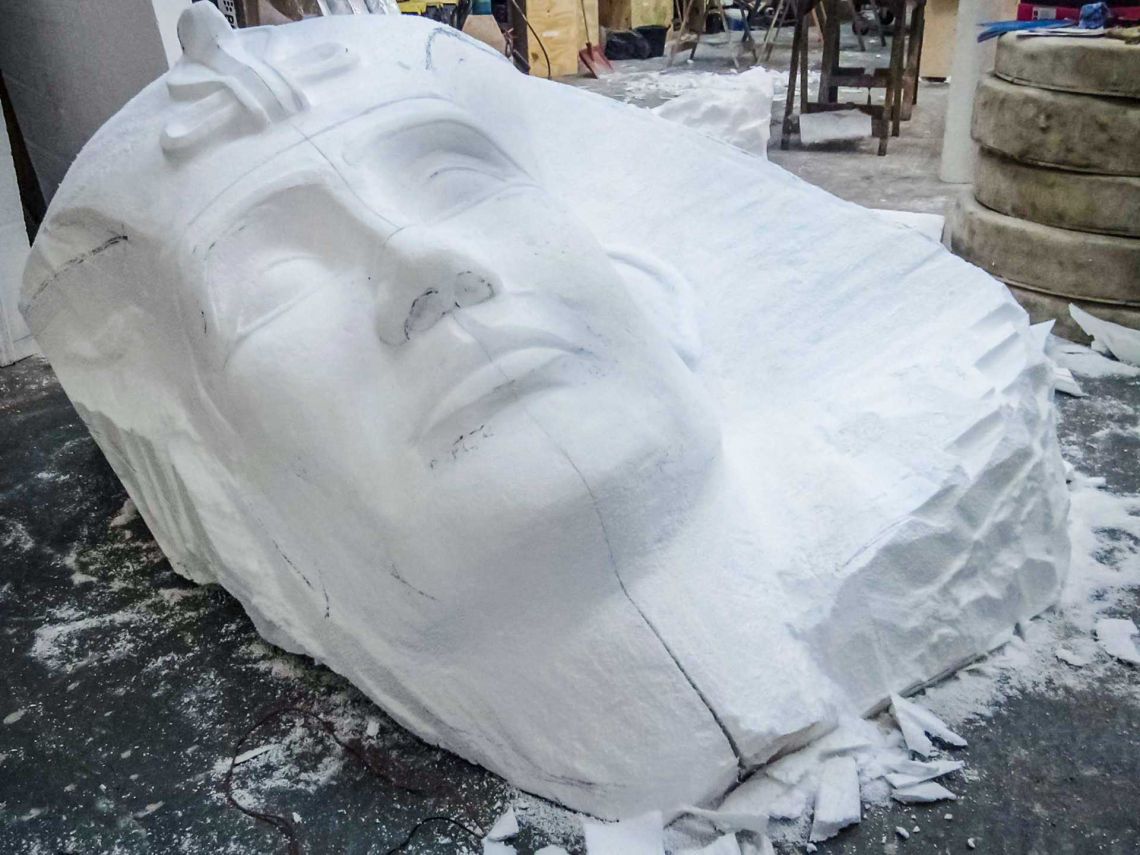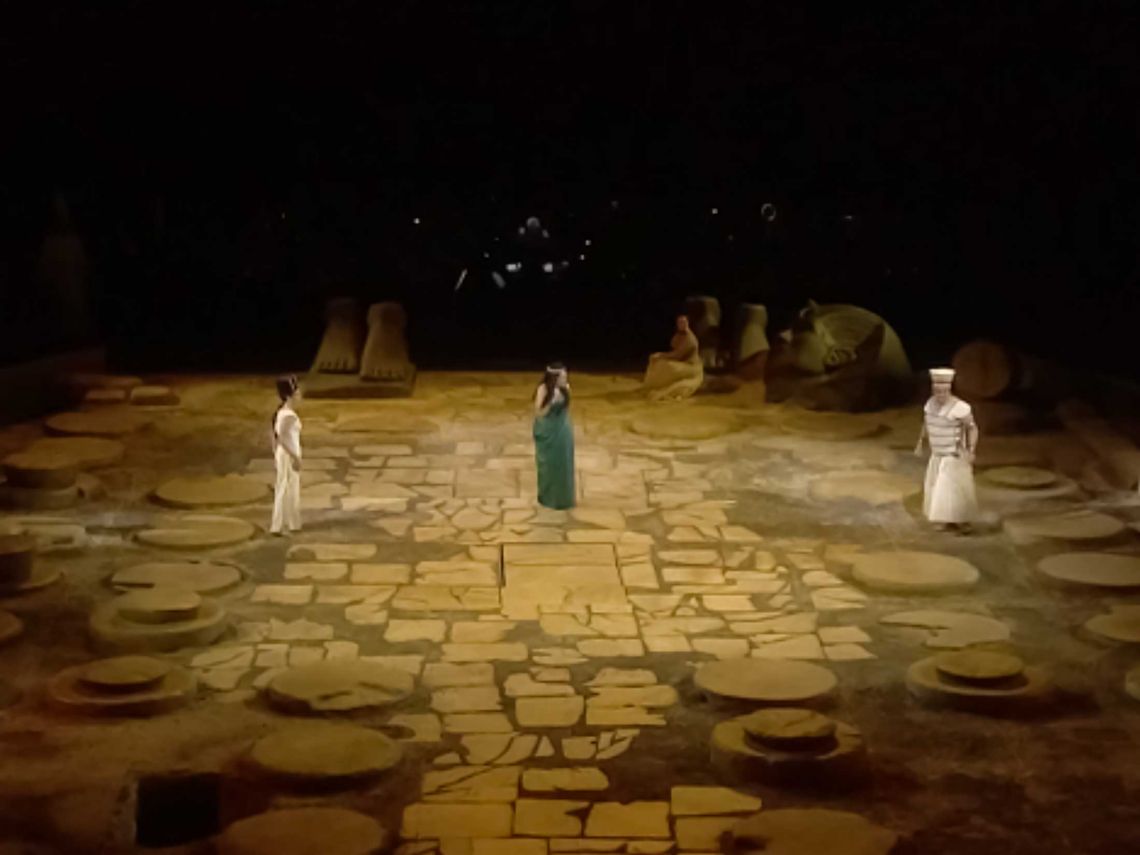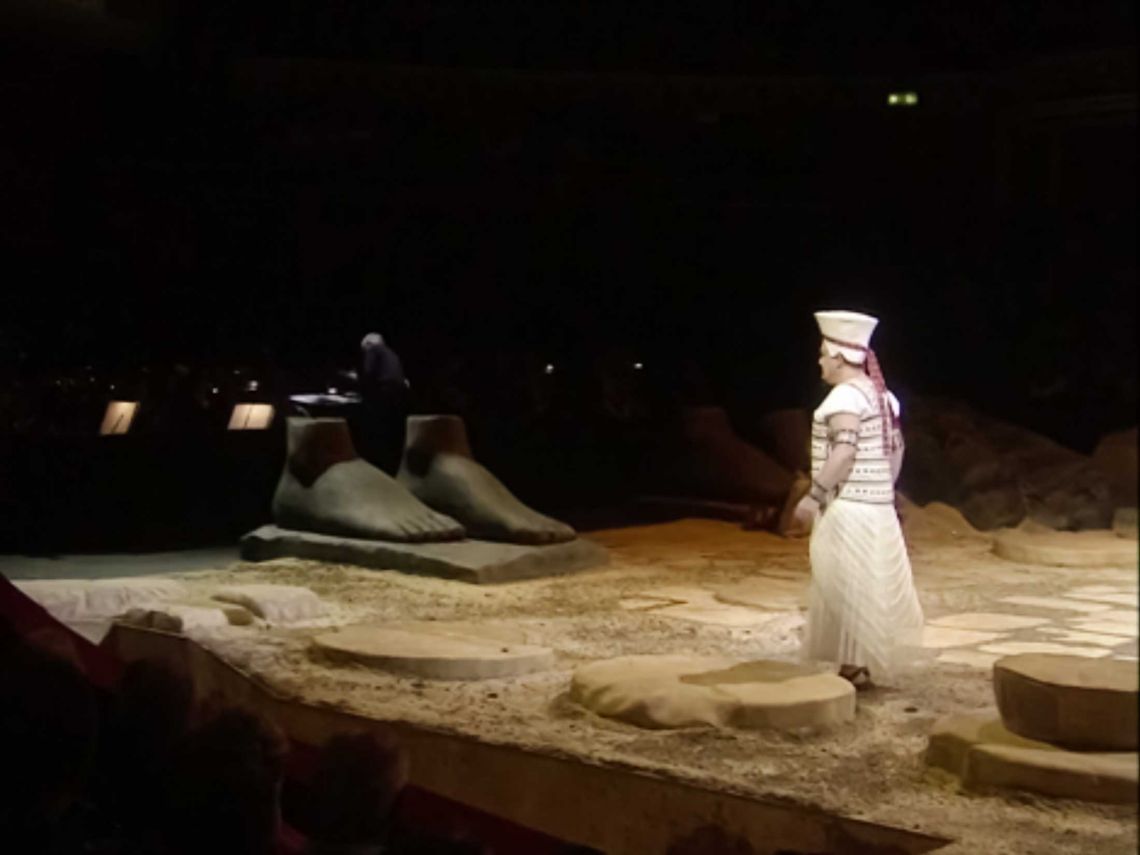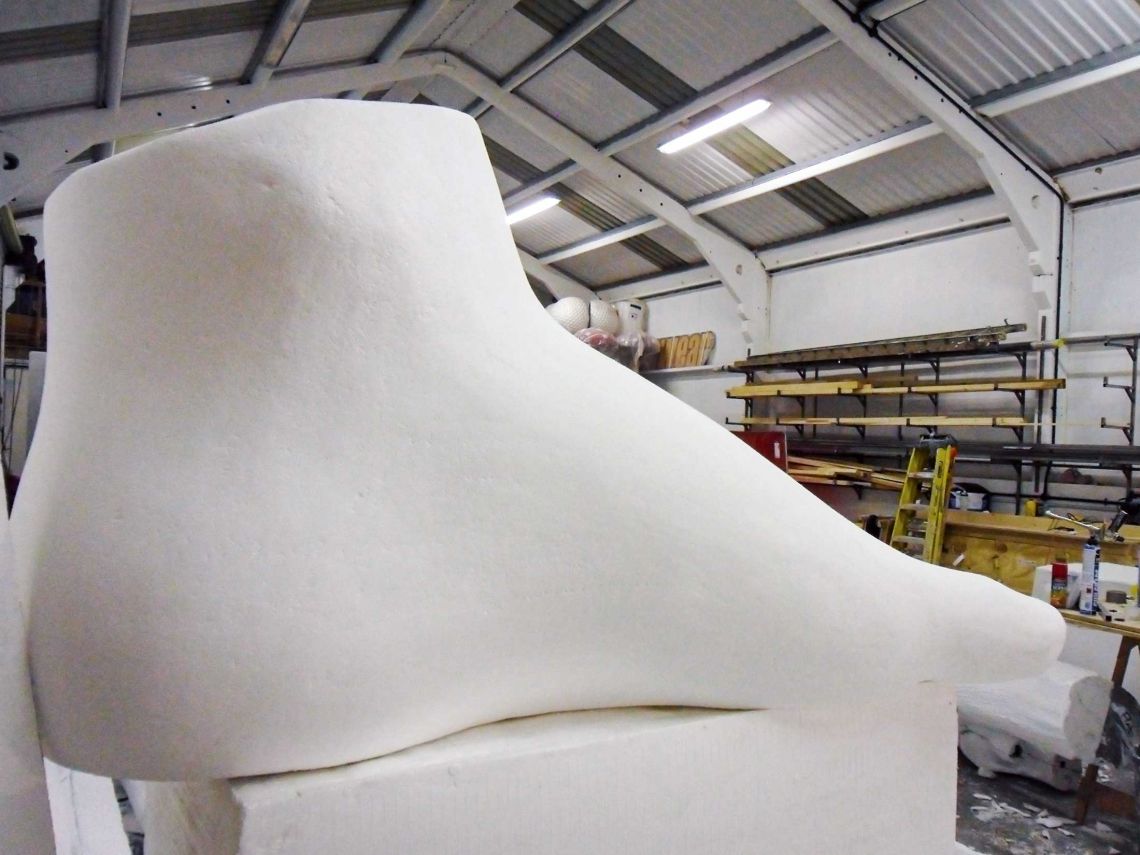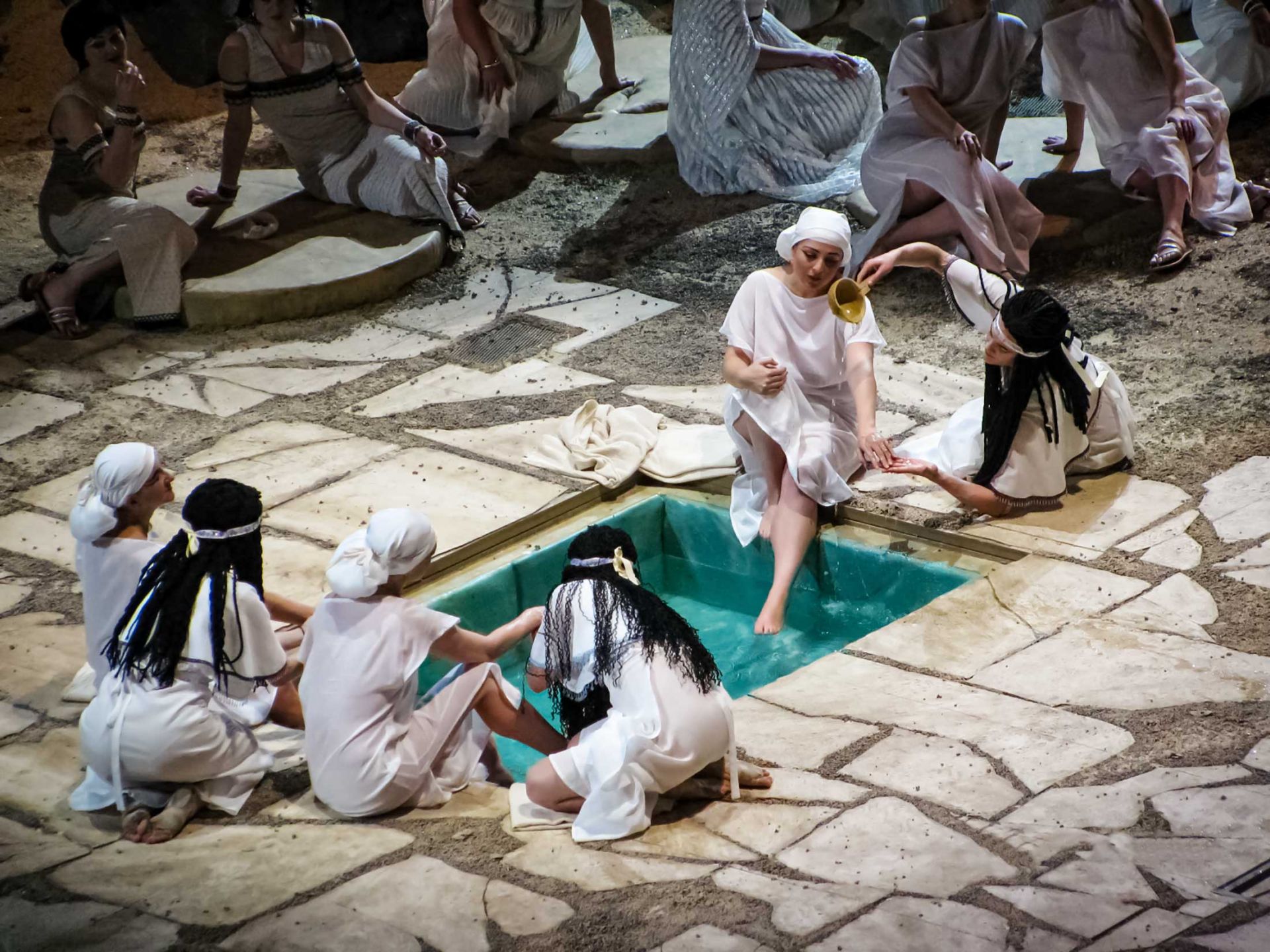The brief
The opera Aida was shown at The Royal Albert Hall and we were asked to make all the prop elements for on-stage. The stage was vast and the sizeable objects we sculpted were dwarfed but due to the number of actors on stage, they needed space to move around. Our props had to be walked on, jumped on and danced on so they had to be robust but also light enough that they could be moved during scene changes as they had to be carried by the backstage crew.
Prop process images
The Process
As there were only one of each prop and no multiples, we decided to sculpt in polystyrene and coat with fibreglass. Everything had to look as though they were the remains of a lost Egyptian civilisation, so we made broken down, aged columns at differing heights, giant feet, a giant sphinx head and a spa that had to hold water. Our props had to blend in with the stage, which was made by a scenery company and they had to be painted to match the existing scenically painted stage.
Feet props – as with all the sculptures on this project, were made with polystyrene and coated with aluminium foil to protect the polystyrene against the polyester based fibreglass, which will melt it and totally misshape it.
Column props – we used polystyrene to shape the columns and then covered them with a vacuum formed plastic sheet of hieroglyphics. On to this we added texture to give the finished piece an aged, broken down look.
The giant head prop – was sculpted in polystyrene to look as though it has fallen from a giant stone sculpture. It was then coated with fibreglass prior to being painted.
The spa – To make the spa look as though it was aged and cracked we used a dense foam and sculpted the cracked tiles from this, then we coated it with fibreglass to make sure that it was totally waterproof. A waterproof lacquer was used on top of the finished, painted spa.
Project Images
The Result
The vastness of the stage made our giant props look as though they were dwarfed. The head was seen at the far end of the stage. We were really pleased with the result and the impact they made on stage.


